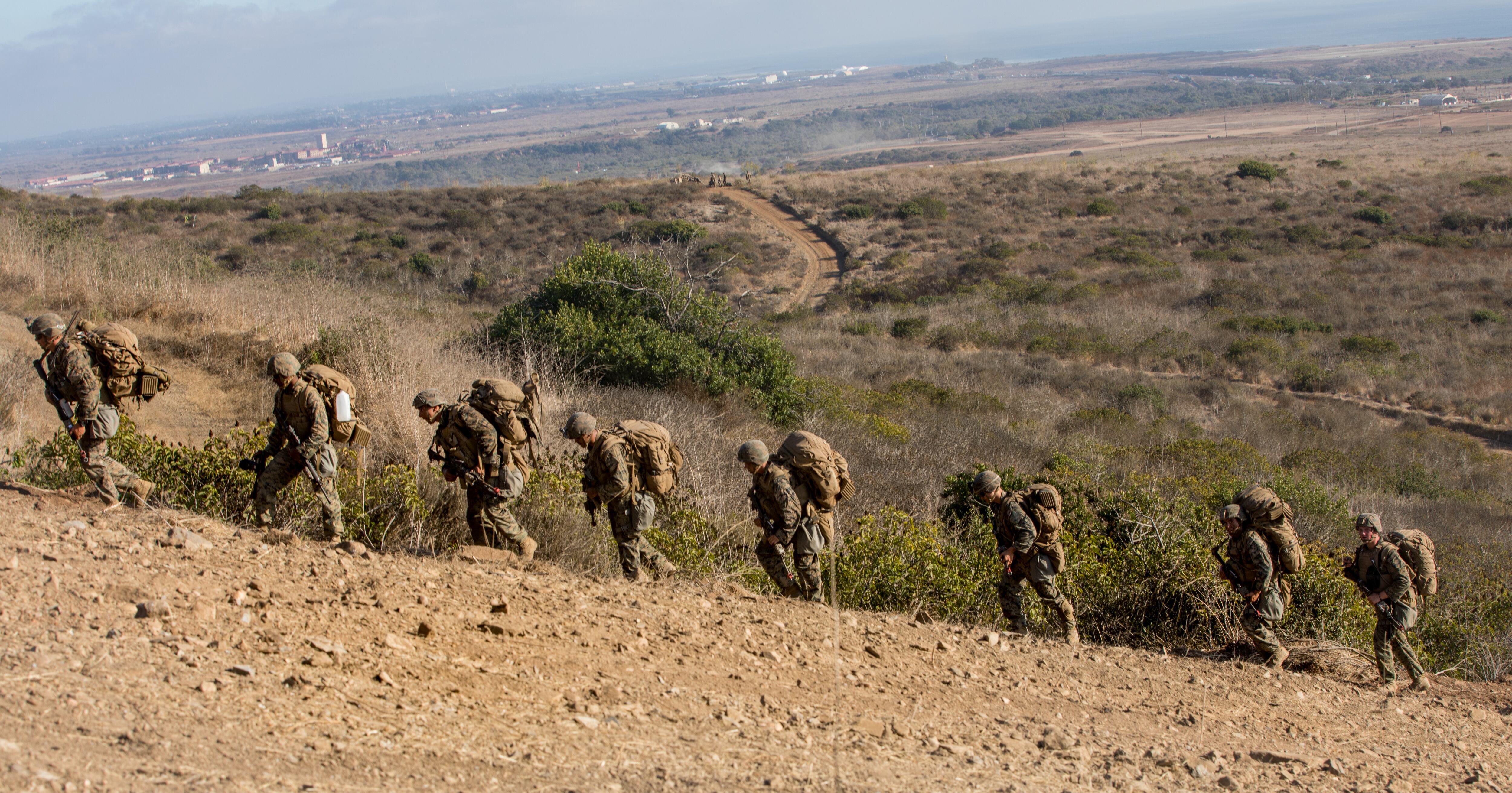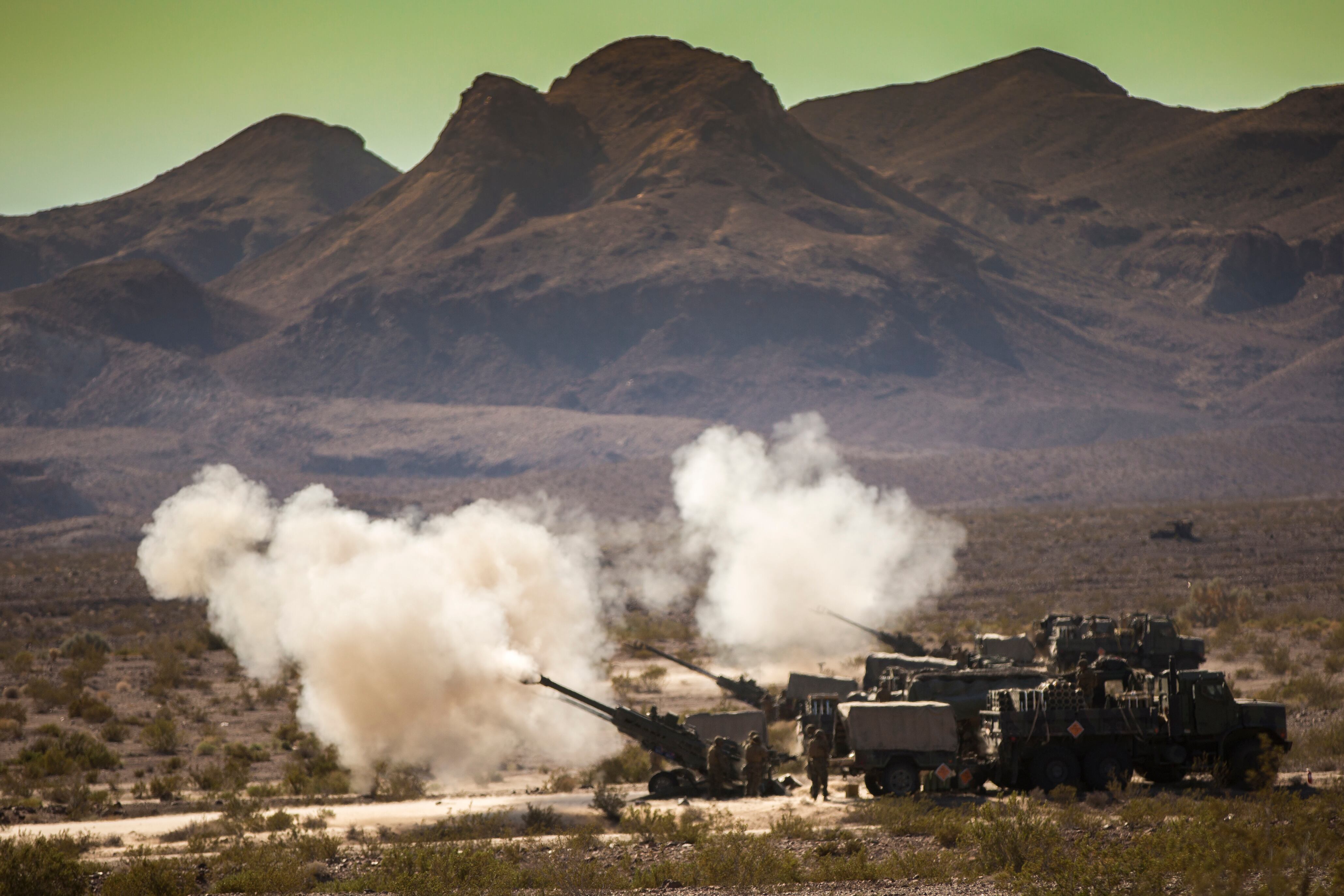In 2019 Marines participated in large exercises more reminiscent of Cold War workups than preparations for counter-insurgency deployments to the Middle East ― and so far 2020 looks to be no different.
In June 2019 the 2nd Marine Division, based in Camp Lejeune, North Carolina, conducted the largest air assault in decade when nearly 500 Marines loaded onto six CH-53E Super Stallions and eight MV-22 Ospreys, to offload and set up a perimeter meeting an opposing force of more than 60 Marines.
RELATED

In November 2019, the 2nd Marine Division once again conducted an unprecedented exercise: Sending roughly 10,000 U.S. Marines, sailors and British Royal Marines to the Marine Corps Air Ground Combat Center in Twentynine Palms, California, for an unscripted force on force exercise.
Maj. Gen. David Furness, the division’s commanding general, said a Marine exercise of this scale: “force-on-force, multi-regiment outfitted with significant information operations and UAS assets — hasn’t been conducted in the Marine Corps in my lifetime.”
To finish the year, the 1st Marine Division kept with the theme conducting the largest ever Steel Knight, an annual 1st Marine Division exercise.
It started with the largest ever beach assault at Camp Pendleton, California, and continued into the training area at Twentynine Palms and was even scheduled to include operations into Arizona and a crossing of the Colorado River.
The I Marine Expeditionary Force is scheduled to do a MEF level exercise in late January.
The 2nd Marine Division currently plans to conduct a “naval large scale exercise” in May, but has not released any details about the exercise.
The exercise will deploy nearly 50,000 Marines and sailors from all elements of the MEF to training bases across California and Arizona.
“Participants will face a capable competitor with effective ground, information and communication capabilities,” I MEF spokesman, 2nd Lt. Brian Tuthill, told Marine Corps Times.
“To challenge our Marines and prepare them for realistic operations, exercise participants will face situations of operating in an internet and communication-degraded environment,” he added.





